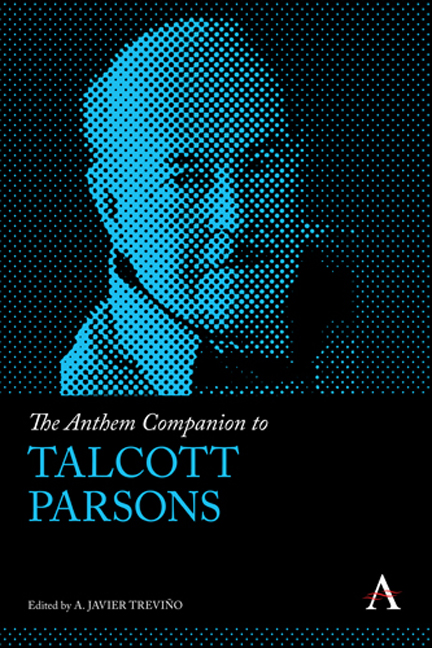Book contents
- Frontmatter
- Content
- Introduction
- Part I Political and Humanist Concerns
- Part II Social Evolution and the American Societal Community
- Chapter Seven Explaining Modernity: Talcott Parsons's Evolutionary Theory and Individualism
- Chapter Eight Talcott Parsons's Historical Analysis and the Cultural–Political Freeze in China: A Reinterpretation
- Chapter Nine Talcott Parsons and American Exceptionalism
- Chapter Ten American Society and the Societal Community: Talcott Parsons, Citizenship and Diversity
- Chapter Eleven Parsons and Nisbet: Two Versions of Sociological Communitarianism
- Contributors
- Index
Chapter Ten - American Society and the Societal Community: Talcott Parsons, Citizenship and Diversity
from Part II - Social Evolution and the American Societal Community
Published online by Cambridge University Press: 22 July 2017
- Frontmatter
- Content
- Introduction
- Part I Political and Humanist Concerns
- Part II Social Evolution and the American Societal Community
- Chapter Seven Explaining Modernity: Talcott Parsons's Evolutionary Theory and Individualism
- Chapter Eight Talcott Parsons's Historical Analysis and the Cultural–Political Freeze in China: A Reinterpretation
- Chapter Nine Talcott Parsons and American Exceptionalism
- Chapter Ten American Society and the Societal Community: Talcott Parsons, Citizenship and Diversity
- Chapter Eleven Parsons and Nisbet: Two Versions of Sociological Communitarianism
- Contributors
- Index
Summary
Talcott Parsons's career is characterized by many extraordinary features. Besides being remarkably productive, his work shaped and was in turn shaped by many of the dramatic changes in the way that sociologists throughout most of the twentieth century conceived their own discipline. Parsons's initial intellectual steps were part of the very same growing pains that sociology experienced as a full-fledged academic discipline.
His first mission, during the 1930s, was to define sociology's subject matter, draw boundaries around its domain and provide a common language for its practitioners. He tried to do this by working out, from the writings of (then) little-known European theorists, a consistent framework for developing social theory along subjective, voluntarist lines. Parsons knew his was a minority voice in this endeavor. Sociology's audience at the time was a motley crew of do-gooders, activists, muckrakers, social reformers and radical social critics. At the same time, analytically inclined scholars believed that economic and biological reductionism were the only positions compatible with science. Against this background, Parsons had to elaborate a distinctive position, claiming that a defense of the agency of individual actors and the possibilities for social progress required disciplined analytical arguments. Sociology could contribute to the self-understanding of contemporary modern societies only by breaking away from both political activism and naive scientism.
Indeed, Parsons's entire intellectual efforts are an attempt to provide an analytical alternative to what he called in his early works utilitarianism and in his final text economic imperialism. At the same time, he advanced the view that only a network of professional researchers sharing a common analytical framework and a commitment to objectively argued knowledge could provide adequate understanding of contemporary society (and of the panoply of conflict, cleavages and strains embedded in its structures). Parsons's opposition to activism as a substitute for analytical reasoning, however, neither implies a lack of interest in the empirical analyses of pressing social issues nor a complacent acceptance of the current state of social and political affairs.
Parsons was a talented empirical analyst who always integrated theory with innovative analyses of concrete social phenomena. He also defended some strongly held convictions. First, Parsons was radically antinostalgic in his appreciation for modern society and its core values.
- Type
- Chapter
- Information
- The Anthem Companion to Talcott Parsons , pp. 191 - 206Publisher: Anthem PressPrint publication year: 2016



